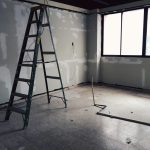Understanding Urban Noise Issues in the UK
Urban noise pollution is a pressing issue in many parts of the United Kingdom. Common sources of urban noise include traffic, construction, and public events. While these noises are often an unfortunate byproduct of vibrant city life, their effects are far-reaching. Noise pollution can lead to a myriad of health issues, such as stress, sleep disturbances, and even cardiovascular diseases. The constant barrage of noise can severely impact a person’s overall well-being, making the management of this issue crucial.
To mitigate these effects, the UK has established regulations and guidelines aimed at controlling noise disturbances. The Environmental Protection Act provides a framework for identifying and addressing statutory nuisances, which include noise issues. Local authorities are empowered to investigate complaints and take necessary actions to reduce noise pollution. In addition, building regulations ensure that new constructions adhere to standards that minimize sound transmission.
Have you seen this : Ultimate 2023 Blueprint: How to Secure Your Temporary Street Trading License in London
Efforts to control urban noise are continuous and require the collaboration of both residents and authorities. Understanding and participating in the regulatory processes can empower individuals to contribute to a quieter and healthier living environment. By being informed, residents can engage more effectively in discussions and interventions surrounding urban noise.
Effective Complaint Procedures
Navigating the noise complaint process effectively can make a significant difference in reducing disturbances. Before initiating a formal complaint, it’s essential to take preliminary steps. Attempt to resolve the issue amicably by discussing the problem with the source, such as a neighbor or local business. When this is insufficient, documenting the disturbances becomes crucial. Keep a detailed log of noise incidents, noting the time, duration, and intensity. Video or audio recordings can further support your claims and serve as compelling evidence when reporting noise to local authorities.
Also to see : Discover energy-efficient double glazing solutions in haywards heath
Engaging with local authorities involves understanding their role and responsibilities in addressing noise complaints. Initially, submit your documented evidence to them through their designated reporting channels. Authorities typically assess the situation and decide the appropriate course of action based on the severity of the complaint. They may issue warnings to violators or impose penalties to ensure compliance with noise regulations.
Local councils play a pivotal role in mediating disputes and enforcing noise control measures. By following these steps, residents can ensure their voices are heard, contributing to a quieter and more harmonious community environment. Addressing noise pollution effectively requires cooperation between residents and officials, facilitating lasting solutions.
Soundproofing Solutions for Residents
Urban living often comes with its share of noise challenges, but effective soundproofing can significantly improve your home environment. Implementing both temporary and permanent solutions can offer relief and enhance peace.
Temporary Soundproofing Solutions
For those looking for a quick fix, using white noise machines and soundproof curtains can reduce noise infiltration significantly. White noise machines mask external sounds by producing a consistent ambient sound. Meanwhile, soundproof curtains are crafted with dense materials that absorb sound waves, cutting down on noise entry.
Permanent Soundproofing Strategies
Long-term strategies often involve investing in high-quality insulation and innovative silent window systems. Insulation can prevent sound transmission between rooms and from outside. Silent window systems employ multiple glass layers with air gaps to obstruct and dampen sound waves effectively.
Community Soundproofing Initiatives
Engaging in community-driven projects can amplify noise reduction efforts. Examples include group purchases of soundproofing materials, which lower costs and increase accessibility. Collaborating with neighbors to address shared noise concerns can lead to collective benefits. Joint efforts can also involve petitioning for noise barriers in particularly affected areas, leading to more sustainable noise management solutions.
Community Resources and Expert Opinions
Access to community resources and expert advice can be vital in tackling urban noise. Across the UK, several organizations focus on addressing noise issues. These groups not only provide guidance but also facilitate community-led initiatives to combat noise pollution effectively.
One such organization is the Noise Abatement Society, renowned for its advocacy and educational programs. This society works alongside local noise groups, offering platforms for residents to voice their concerns and share experiences. Additionally, they provide resources to help individuals understand noise regulations and how to navigate them.
Engaging with professionals in acoustics offers residents valuable insights into noise reduction strategies. Experts can guide residents on effective soundproofing measures tailored to specific needs. For instance, acoustics professionals often recommend the use of decibel meters to quantify noise levels accurately, enabling more precise noise management strategies.
Case studies on successful noise complaint resolutions further illustrate how communities have effectively reduced noise levels. In many instances, collaboration between residents, authorities, and acoustics experts has led to sustainable solutions. These real-world examples inspire confidence and provide practical steps for others facing similar noise challenges. By harnessing community resources and expert opinions, residents can play a proactive role in creating quieter environments.
Empowering Residents and Future Actions
Equipping residents with knowledge and resources to tackle urban noise is key for future progress. Encouraging proactive engagement in local communities can create significant strides in managing noise pollution. Active involvement begins with understanding the available urban noise management tools and participating in community forums. These engagements allow residents to discuss their experiences, share solutions, and unify their voices for greater impact.
Access to continuous education on noise management empowers residents to stay informed about evolving strategies and regulations. Local councils often hold workshops and produce materials that aid in raising awareness about effective noise control methods. Such resources ensure that individuals remain at the forefront of innovation concerning noise reduction.
Future legislative changes present opportunities for residents to influence policy reform. By participating in consultations and providing feedback, communities can impact policy directions that accommodate the collective needs of urban dwellers. This is not only empowering but critical for crafting noise regulations that reflect current challenges and solutions.
Encouraged by collective efforts and informed insights, residents can effectively contribute to future noise policies, ensuring environments evolve towards quieter, healthier living spaces for all. Making informed decisions now paves the way for sustainable urban living in the years to come.










